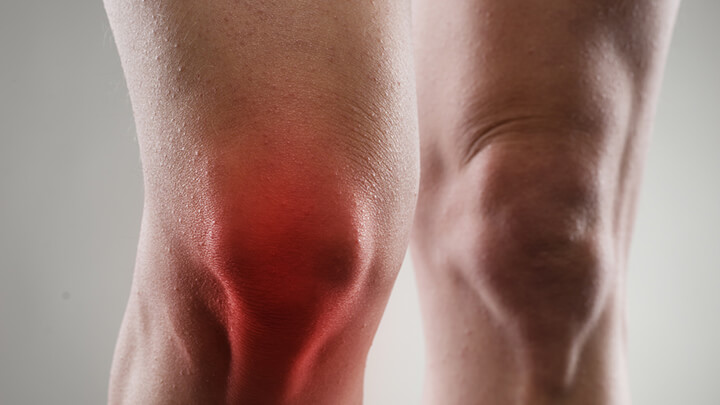
While I know that many people in the Western world find them off-putting, I absolutely adore sea vegetables. Red, brown, green, crispy, chewy… they all taste great to me. My favorite kind has to be the delicious nori used to wrap sushi rolls (it’s also the kind of seaweed you’ll find dried and crisp for snacking), but I also love the little bites of kelp found in miso soup. They add such a wonderful, salty flavor. As a bonus, kelp is incredibly healthy.
Kelp, also known as kombu, is a type of brown algae. It is also sometimes simply referred to as “large seaweed,” and can represent about 300 types of types of seaweed that fall under the kelp category. Seaweed itself is ancient, and part of the oh-so-healthy algae family. It’s also very versatile. Kelp can be used to flavor foods; seaweed has a great natural “umami” flavor, and is often used in Japanese and Chinese soup bases. It can also be used to add a green, nutritious accent. It can even be eaten on its own, if you like the taste (I do, it’s mild and pleasant).
If you want a good reason to add more kelp to your meals, here are eight that come to mind.
1. Vitamins and minerals galore
Eating kelp is a great way to get some vitamins and minerals into your system. This yummy seaweed contains vitamins C and K, along with several B-vitamins. It also contains many minerals and other nutrients, including calcium, copper, potassium, iodine, fiber, magnesium, manganese and zinc.
Eating the traditional Western diet, as so many of us do all too often, can lead to vitamin and mineral deficiencies. Choosing to switch to a healthy lifestyle, and adding kelp to your nutritious recipes, is a great way to get replenished.
2. Iodine for thyroid health
One of the most important benefits of brown algae such as kelp is its high content of iodine. Having an adequate balance of iodine in your body is key to the health of your thyroid. The thyroid is an organ located in your neck. It produces hormones, which are involved in many different functions of your body and mind. If you don’t have enough iodine in your body, your thyroid function may suffer.
Eating kelp on a regular basis may help to improve your thyroid function if your iodine levels are low. Of course, if you suspect your thyroid may be out of whack, your first step should be to see a health professional you trust to get to the bottom of the issue. Then, you’ll be able to find out how much iodine your body needs.
3. Antioxidants to fight inflammation and free radicals

Kelp is high in several antioxidants, including carotenoid and flavonoid antioxidants. It also contains vitamin C, which is known to have potent antioxidant properties within the body. On top of that, kale contains various alkaloids with antioxidant properties. All of these antioxidants combined can help to combat chronic inflammation throughout your body (which can be very dangerous when left unchecked) and keep you feeling your best.
4. Chlorophyll content benefits your blood
Kelp, like other green plants, is high in chlorophyll. Chlorophyll does more than make plants green. Its structure resembles that of human blood, and because of this, may be very beneficial to the health of our blood and entire circulatory system. One such benefit is stimulating the body’s production of red blood cells, which encourages better oxygen delivery to all of the vital organs in your body. Chlorophyll also has many other important benefits.
5. Fiber is vital for your gut and your heart

You probably already know this, but your body needs fiber to function properly. Luckily, kelp contains a wealth of it. Fiber is not only important for digestion, it’s also key to heart health, and the health of your gut, which greatly affects your immune system.
6. Kelp is a vegan source of protein
For those looking for a yummy vegan protein to add to their diets, kelp is a great option. It’s not an entirely complete protein, but it’s close, as it contains numerous amino acids. So, while kelp may not work as a lone protein source, combined with other healthy sources of protein, such as beans, legumes, seeds and a variety of veggies, it can augment your diet significantly.
7. Kelp is alkaline
Many people who regularly consume the Western diet are too acidic, and this can lead to health issues. Kelp is alkaline in nature, which may help to balance out some of that acidity. Of course, getting rid of the junk in your diet and focusing on whole, nutritious foods is the first step. However, kelp is one of the great nutritious foods you can add.
8. Kelp may help fight cancer
Sea vegetables including kelp may help to fight cancer thanks to their nutrients and anti-inflammatory compounds. They may be especially helpful to estrogen-related cancers such as breast cancer, however, much more research needs to be done on this topic.
But before you eat it every day…
While kelp is incredibly healthy, don’t go overboard. Too much iodine in your system can produce toxicity. If you’re thinking of eating more kelp than would normally be called for in recipes, talk to a health professional you trust first. Also, talk to your doctor if you are considering adding kelp to your diet if you have a cardiovascular or metabolic condition, because of sodium concerns.
What’s your favorite way to enjoy kelp?
— Tanya Mead

